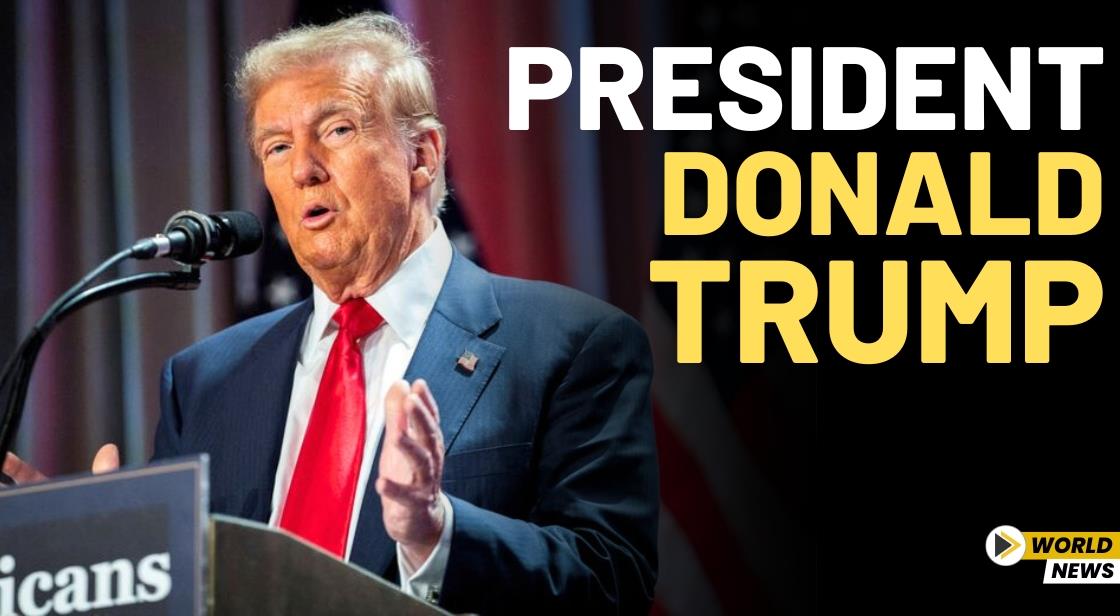Trump Announces 100% Tariff on Foreign Films, Shaking Hollywood’s Global Model

News Synopsis
In a move that could shake the foundations of the global entertainment industry, President Donald Trump announced on Monday that the United States will impose a 100% tariff on all films produced overseas and imported into the country. The statement echoes a threat he first made in May and highlights his administration’s readiness to extend protectionist trade policies into cultural industries.
Industry experts warn that such a drastic measure could upend Hollywood’s international business model, which relies heavily on co-productions, overseas filming, and global box-office revenue.
President Donald Trump’s Rationale Behind the Move
“Our movie making business has been stolen from the United States of America, by other Countries, just like stealing candy from a baby,” Trump said in a post on Truth Social.
The comment underscores Trump’s broader “America First” approach, emphasizing his view that foreign markets and production hubs have taken away opportunities from U.S. film workers and studios.
Legal and Implementation Uncertainty
Despite the bold announcement, it remains unclear what legal authority Trump would use to impose such a tariff. The White House has not yet responded to questions from Reuters regarding the mechanism of enforcement.
-
Warner Bros Discovery, Paramount Skydance, and Netflix declined to comment when approached.
-
Comcast also refused to provide a statement.
Analysts argue that even if implemented, the move would trigger significant disruption across the industry.
Industry Reactions and Concerns
“There is too much uncertainty, and this latest move raises more questions than answers,” said PP Foresight analyst Paolo Pescatore.
“For now, as things stand, costs are likely to increase, and this will inevitably be passed on to consumers.”
The entertainment industry is grappling with questions on whether the tariffs would apply universally to all foreign films or target specific countries. The lack of clarity has left studio executives and unions uncertain about the scope of the policy.
Hollywood’s Global Dependence
The Motion Picture Association (MPA) reported that in 2023, the U.S. film industry posted a $15.3 billion trade surplus, driven by $22.6 billion in international exports. This highlights how integral overseas markets are for Hollywood’s financial health.
-
Production Hubs Abroad: Countries like Canada, the UK, and Australia have become vital filming destinations due to tax incentives, attracting blockbuster projects ranging from superhero epics to streaming hits.
-
International Co-productions: Collaborations with studios in Asia and Europe have surged, providing Hollywood access to financing, markets, and distribution pipelines.
If tariffs are imposed broadly, thousands of U.S. workers involved in overseas shoots—such as visual effects teams and production crews—could also be impacted.
Calls for Domestic Incentives
Following Trump’s earlier announcement in May, a coalition of American film unions and guilds urged the administration to consider domestic tax incentives as part of a Congressional reconciliation package. Their argument: encouraging more U.S.-based production would benefit workers without triggering trade disputes or increasing consumer costs.
Conclusion
Trump’s proposed 100% tariff on foreign-produced films represents one of the most dramatic policy shifts ever suggested for the U.S. entertainment sector. While aimed at protecting domestic filmmaking jobs, the move threatens to disrupt an industry deeply intertwined with global production, financing, and distribution.
With Hollywood’s trade surplus of $15.3 billion in 2023 and its reliance on markets like Canada, Europe, and Asia, the tariff could have unintended ripple effects—raising costs for studios and audiences alike. Until clearer details emerge, uncertainty will continue to cloud the future of Hollywood’s global business model.
You May Like









